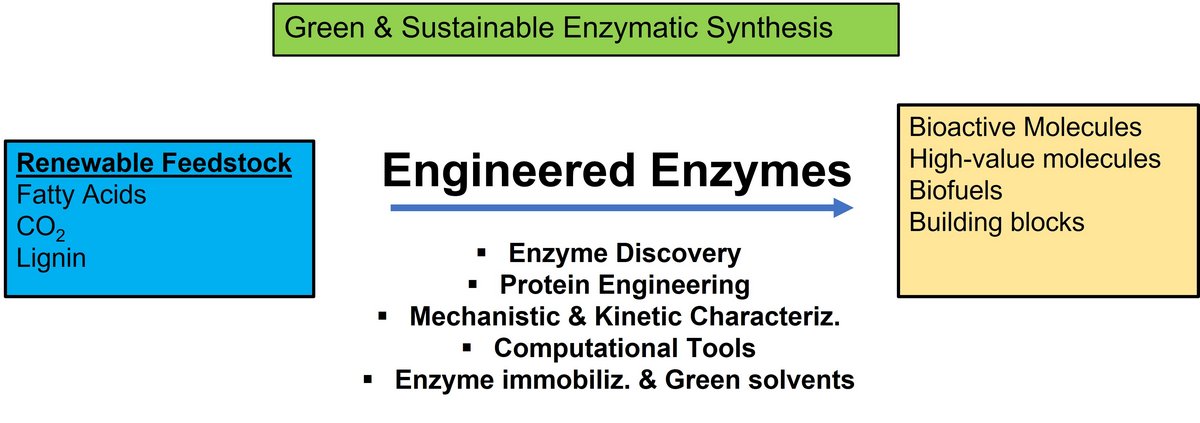

The research in the Enzyme Engineering group focuses on the improvement of the biocatalytic capacity of enzymes through protein engineering approaches, enzyme discovery, computational tools, enzyme kinetics and mechanistic enzymology. Enzymes have great advantages over chemical catalysts, such as capability to produce a versatile set of high-value products, excellent regio- and stereo-selectivity, reusability, ambient conditions for activity leading to energy saving and biodegradability. Owing to these benefits, enzymes attracted a great deal of interest from various branches of industry. Deciphering enzyme mechanisms also inspire new chemistries and new catalysts.
Today, the number of commercially available enzymes only reflects a small portion of the total potential of known enzymes. This is mostly due to lack of improvement of efficient enzymes that suit industrial needs such as activity levels, stability, reusability and cost effectiveness.
Recent advances in genetic engineering, structural biology and bioinformatics render us the chance to engineer existing enzymes as well as to discover new enzymes to obtain biocatalysts that are more efficient for industrial and medical purposes. We are particularly interested in discovering new biocatalysts with industrial potential and modifying known enzymes for enhanced production technologies, including cascade reaction systems, of high-value chemicals and of medically important molecules. We aim to explore not only natural enzymatic transformations, but also potential non-natural reactions through substrate engineering and enzyme reprogramming.
